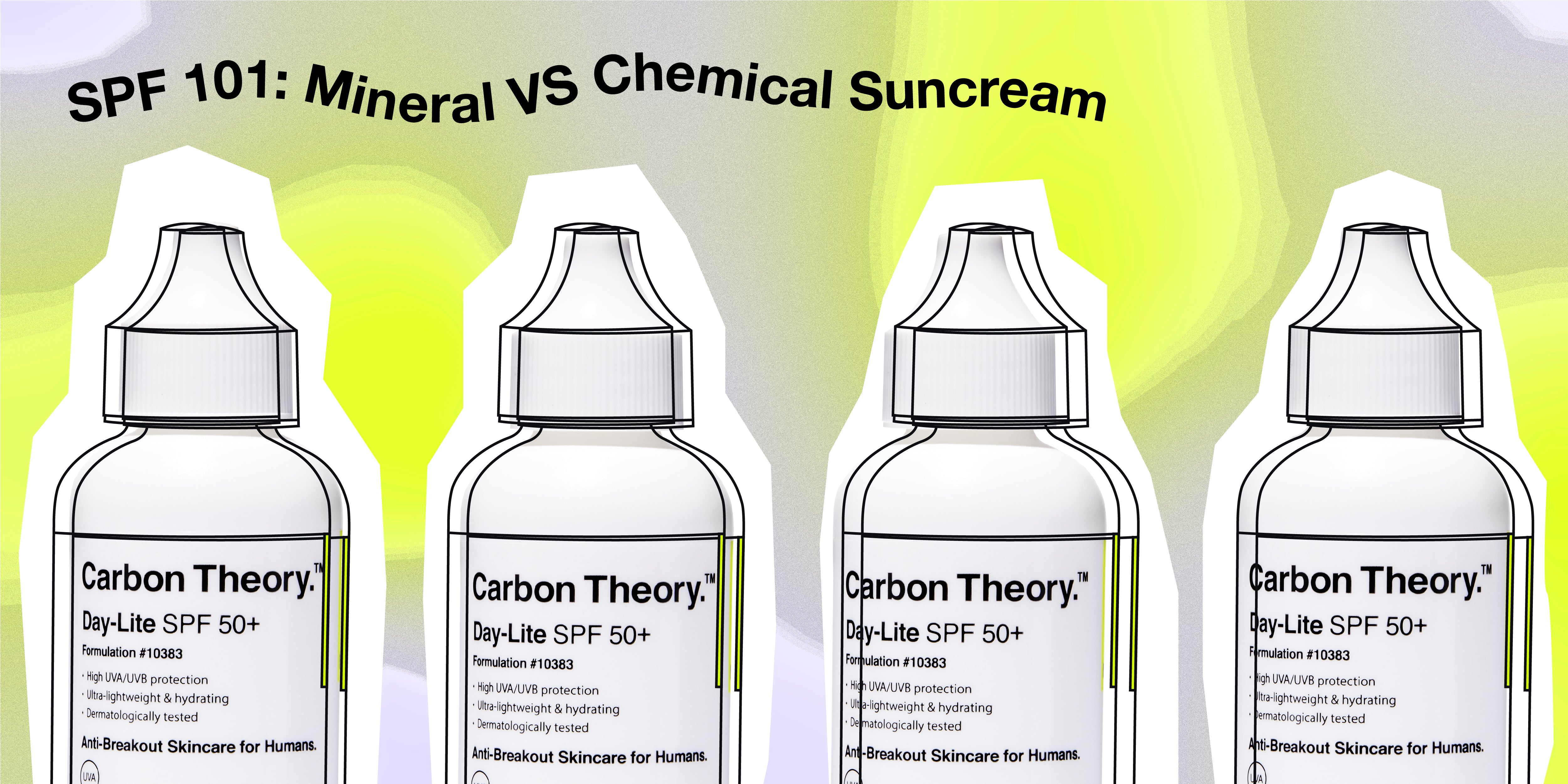Honestly? We could wax lyrical about the importance of sunscreen.
Sunscreen protects our skin from lines, can prevent redness and, most importantly, protects us from skin cancer. In fact, a study from JAMA Dermatology found that regular sunscreen use in young adults is strongly associated with a reduced risk of melanoma (a type of skin cancer).
However, when it comes to picking a sunscreen, like all things skincare, it can sometimes be a bit confusing to know what’s right for you. Especially when there are so many different terms used to describe them. Natural? Physical? Mineral? Chemical? Which one is right for your skin?
Don’t worry, we’ve got you covered. We’ve broken down what each type of sunscreen is to help you figure out what’s right for your skin.
How are chemical and mineral sunscreens different?
There are two main types of sunscreen. Chemical and Mineral.
Mineral (also known as physical or natural sunscreen) and chemical sunscreens protect your skin in different ways. Mineral sunscreens contain active mineral ingredients like zinc oxide. These work by physically sitting on your skin to deflect UVA and UVB rays.
Whereas chemical sunscreens contain organic (carbon-based) compounds that create a chemical reaction and work by changing UV rays into heat, which is then released from the skin.
Ok, let’s break it down into pros and cons
Mineral Sunscreen Pros
- Unlike chemical sunscreen - which can take up to half an hour to absorb into the skin - mineral sunscreen offers immediate protection. It can also be applied on top other products
- The heat dissipation of chemical sunscreens can exacerbate some skin conditions, so mineral sunscreen is perfect for those with more sensitive skin
- Less likely to clog pores
Mineral Sunscreen Cons
- Mineral sunscreen can feel heavy on the skin
- Unlikely to contain skin positive ingredients like chemical sunscreen
- Unlike chemical sunscreen, you’ll need to reapply more often as it can sweat off easily
While there are plenty of things to love about mineral sunscreen, it’s worth noting that if you have a darker skin tone, mineral sunscreen often leaves a white cast on your skin.
Chemical Sunscreen Pros
- Lightweight and ideal for everyday use
- Due to the formula of chemical sunscreen, it’s easy to add hydrating and other skin-loving ingredients
- Less is needed to protect the skin because there is no risk of leaving spaces between the sunscreen molecules after application as it’s absorbed into the skin
Chemical Sunscreen Cons
- Can cause skin reactions in certain people (especially those with sensitive skin, melasma and rosacea)
- Once applied, will take 20 to 30 minutes to absorb into the skin
So, which sunscreen is right for you?
Well, that’s totally up to you. The ideal sunscreen for most is a combination of mineral and chemical sunscreen (like our Day-Lite Factor 50). However, depending on your skin type, you might find that you need to apply this with moisturiser or another hydrating product. It’s often worth trialling a product to see how it works for your skin.
But, when it comes to sunscreen, the most important element is picking one that you’ll actually wear every single day.


Share:
How to *actually* apply SPF
5 things to look for in an SPF 🌞